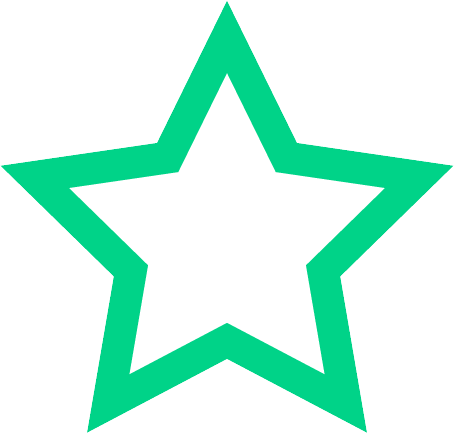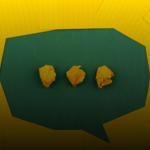Section 1
Preview this deck
Cliche
Front
Active users
0
All-time users
0
Favorites
0
Last updated
4 years ago
Date created
Mar 1, 2020
Cards (100)
Section 1
(50 cards)
Cliche
A word or phrase, often a figure of speech, that has become lifeless because of overuse.
Foil
A character who functions to contrast against another character, usually the main character, in order to show more clearly their traits.
Euphony
Harmony or beauty of sound which provides a pleasing effect to the ear, usually sought-for in poetry for effect.
Consonance
The repetitive sounds produced by consonants within a sentence or phrase. This repetition often takes place in quick succession such as in pitter, patter.
Free verse
A kind of poetry that does not conform to a regular meter or rhyme scheme.
Diction
1: The choice of words, phrases, sentence structures, and figurative language in a literary work. 2: The manner or mode of verbal expression, particularly with regard to clarity and accuracy.
Anecdote
A short and interesting story or an amusing event often proposed to support or demonstrate some point.
Aside
A comment made by a stage performer that is intended to be heard by the audience but supposedly not by other characters.
Anaphora
Repetition of a word, phrase, or clause at the beginning of two or more sentences in a row. Ex: "It was the best of times, it was the worst of times, it was the age of wisdom, it was the age of foolishness, ...it was the spring of hope, it was the winter of despair."
Catharsis
A sudden emotional breakdown or climax that consists of overwhelming feelings of great pity, sorrow, laughter, or any extreme change in emotion. In Greek theatre, a purging of emotion.
Antagonist
Opponent or force that struggles against or blocks the hero, or protagonist, in a story.
Frame narrative
A story within a story, within sometimes yet another story, as in, for example, Mary Shelley's Frankenstein or Heart of Darkness.
Blank verse
Poetry written without rhymes, but which retains a set metrical pattern, usually iambic pentameter.
Denotation
The direct, specific, and literal meaning of a word.
Elegy
A serious poem upon the death of a particular person, usually ending in consolation.
Cacophony
Unpleasant sounds in the jarring juxtaposition of harsh letters or syllables which are grating to the ear, usually inadvertent, but sometimes deliberately used in poetry for effect.
Deus ex machina
Any artificial device or coincidence used to bring about a convenient and simple solution to a plot.
Farce
A type of comedy in which ridiculous and often stereotyped characters are involved in silly, far-fetched situations.
Enjambment
The continuation of a sentence beyond the end of a line of poetry; when a phrase carries over a line-break without a major pause.
Connotation
An idea suggested by a word, apart from what it explicitly describes. The feeling that goes with a word.
Assonance
The repetition of similar vowel sounds followed by different consonant sounds especially in words that are together. Example: "Old age should burn and rave at close of day; Rage, rage, against the dying of the light."
Couplet
Two consecutive rhyming lines of poetry.
Alliteration
Repetition of the same or similar consonant sounds at the beginning of words that are close together. Example: "The soul selects her own society."
Anticlimax
The intentional use of fancy language to describe the trivial or commonplace, or a sudden transition from a significant thought to a trivial one in order to achieve a humorous or satiric effect.
Euphemism
The substitution of a comfortable or inoffensive expression to replace one that might offend or suggest something unpleasant.
Allusion
A reference to a person, event, or work of art that is known from history, literature, religion, politics, sports, science, or another branch of culture.
Epigraph
A quotation or aphorism at the beginning of a literary work suggestive of the theme.
Foreshadowing
The use of hints and clues to suggest what will happen later in a plot.
Dialect
A way of speaking that is characteristic of a certain social group or of the inhabitants of a certain geographical area.
Bildungsroman
A special kind of novel that focuses on the psychological and moral growth of its main character from his or her childhood to maturity, or some portion thereof.
Caesura
A pause in a line of verse, indicated by speech patterns rather than due to specific metrical patterns.
Chiasmus
In poetry, a type of rhetorical balance in which the second part is syntactically balanced against the first, but with the parts reversed. Example: "Ask not what your country can do for you. Ask what you can do for your country."
Epic
A poem that celebrates, in a continuous narrative, the achievements of mighty heroes and heroines, often concerned with the founding of a nation or developing of a culture.
Archetype
An idealized model of a person, object, or concept from which similar instances are derived, copied, patterned, or emulated.
Ambiguity
Deliberately suggesting two or more different, and sometimes conflicting, meanings in a work
Dramatic irony
An occasion in a play, film, or other work in which a character's words or actions convey a meaning unperceived by the character but understood by the audience.
Asyndeton
Commas used without conjunction to separate a series of words, thus emphasizing the parts equally: instead of "Lions, tigers, and bears!" the writer uses, "Lions, tigers, bears!"
Aphorism
A pithy/brief observation that contains a general truth, such as, "if it ain't broke, don't fix it." Or, "haste makes waste."
Apostrophe
Calling out to an imaginary, dead, or absent person, or to a place or thing, or a personified abstract idea.
Extended Metaphor
A detailed and complex metaphor that extends over a long section of a work. May also be called a "conceit" or "epic metaphor."
Epistrophe
Device of repetition in which the same expression (a single word or phrase) is repeated at the end of two or more lines, clauses, or sentences. "Wherever they's a fight so hungry people can eat, I'll be there. Wherever they's a cop beatin' up a guy, I'll be there.... An' when our folk eat the stuff they raise an' live in the houses they build - why, I'll be there...."
Formal Diction
Language that is lofty, dignified, and impersonal.
Colloquialism
A word or phrase that is not formal or literary, typically one used in ordinary or familiar conversation. Slang.
Antithesis
The juxtaposition of sharply contrasting ideas in balanced words, phrases, grammatical structures, or ideas.
Conceit
A comparison of two unlikely, or vastly different things, that is drawn out within a piece of literature, and likened through the use of similes and metaphors.
Antihero
Central character who lacks all the qualities traditionally associated with heroes. May lack courage, grace, intelligence, or moral scruples.
Allegory
A story or poem in which characters, settings, and events stand for other people or events or for abstract ideas or qualities.
Ballad
An emotional poem or form of verse, often a narrative, set to music.
Exposition
In drama, the presentation of essential information regarding what has occurred prior to the beginning of the play.
Flashback
A retrospection where an earlier event is inserted into the normal chronology of the narrative.
Section 2
(50 cards)


